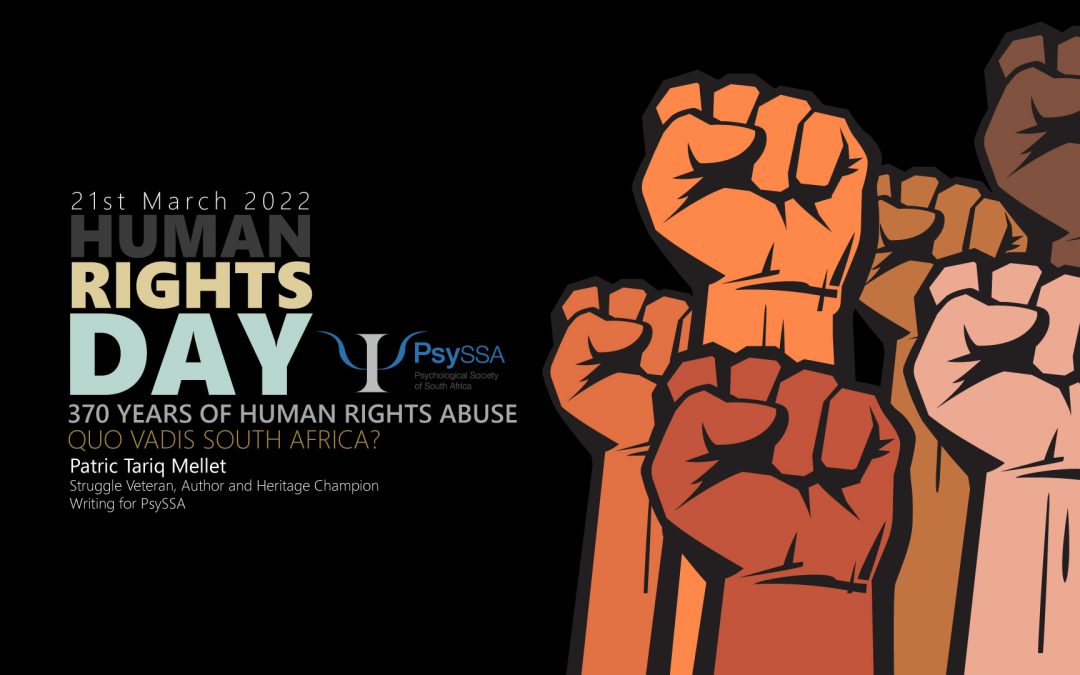370 YEARS OF HUMAN RIGHTS ABUSE – QUO VADIS SOUTH AFRICA?
Over 370 years South Africans experienced 19 wars of land dispossession. San populations were reduced to just a few thousand people with most social formations totally wiped out through genocide. Among others, the Khoe and AmaXhosa peoples’ social, economic, and cultural life was severely disrupted by ethnocide.
For over 200 years we had the system of slavery where over 78 000 people were relocated from over 105 locations in Africa and Asia. Their successive generations of descendants were also enslaved, dehumanised, exploited, and subjected to violent abuse. Following this was indentured labour, migrant labour and labour brokering systems – new forms of trafficking and slavery.
A devastating war between two colonial factions negatively impacted the majority black population, and a new country – the Union of South Africa – was declared without consultation with 90% of the population. Social engineering resulted in over 140 African societies being forced to assimilate into 10 national groups classified as Natives or Bantu/Black, and 7 groups classified as Coloured, which still have negative polarising effects today.
The system of Apartheid followed. It declared that those classified as Black had no citizenship of South Africa, only of Bantustans in 13% of the territory. Those classified as Coloured were stripped of their African birth-rights and relegated to sojourner citizenship sans rights. An Apartheid police and militarised state terrorised people into submission – including continuous massacres – Sharpeville in the 1960s, the killings in the national youth protests in 1976/77, and brutal suppressions of protest in the 1980s. Banning of opposition political organisations, detention without trial, imprisonment of political opponents, death squad murders, and torture and death in detention, as well as widespread military aggression in neighbouring states defined over 30 years into the early 1990s.
Today the generationally transmitted trauma of past crimes against humanity, the highest forms of human rights abuse, still haunts and ravages our society. It is this chain of human rights abuses, still denied by the economically powerful white minority, together with the post 1994 continued use of Apartheid frameworks, which challenges us today. Pouring new wine into old Apartheid wineskins, and endemic corruption by a new Political Estate, resulting in atrocities like the Marikana Massacre, Life Esidimeni tragedy, Xenophobic attacks, politicians stealing finances meant to reduce poverty, and politicians’ actions that resulted in 342 deaths in the July 2021 social explosion – gives cause to reflect.
Astronomical unemployment, social depravation, homelessness, and ghetto built-environments next to palatial personal infrastructure and bling lifestyles of a new elite demands new thinking on human rights abuse in 21st century South Africa. The vortex of current human rights abuses and trauma, built on the old, has many asking – “Quo Vadis South Africa?”
In celebrating Human Rights Day, 21st March 2022, we have much cause to reflect, but even greater cause to act to halt cultures perpetuating human rights abuse. A direct corelation exists today between behaviours of the political and corporate elite, and the state of the poor whose basic human rights are being violated on a grand scale.

